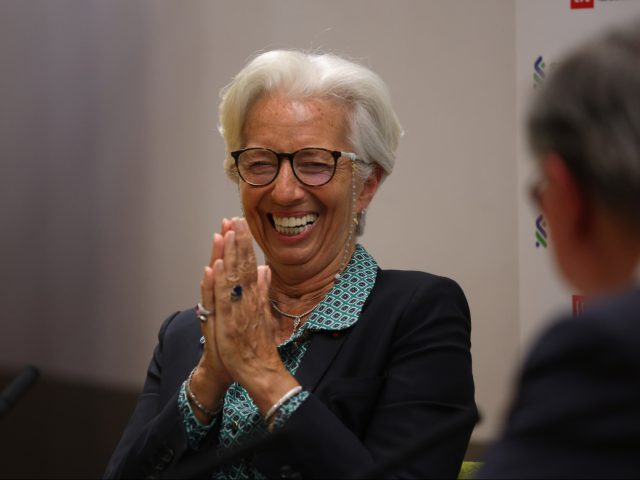The European Central Bank has suggested that the massive influx of Ukrainian refugees into the EU could be used to ease the bloc’s labour shortages.
In what could perhaps be considered an instance of an official saying the quiet part loudly, an economist at the European Central Bank has publicly spoken the truth on establishment incentives for promoting mass migration, suggesting the massive influx of ostensibly Ukrainian refugees into the EU could be dumped onto the already struggling labour market.
With millions of migrants pouring into the union since the start of the war in Ukraine, some countries within the transnational bloc have been struggling to handle the new arrivals, with nations such as Ireland seeing towns as much as double in population within a matter of weeks as a result of the migration crisis.
According to a post on the ECB’s website, however, while this crisis might end up creating serious societal problems for some host nations, the millions-strong influx will at least be good, in their view, for parts of the bloc’s labour-strapped economy.
“If they can find jobs without a lengthy integration process, Ukrainian refugees could help the market to respond to the currently buoyant demand for labour and address worsening skill shortages,” the article posted by the ECB reads.
“…back-of-an-envelope calculations point to a median increase of between 0.2 per cent and 0.8 per cent in the euro area labour force in the medium term,” the document also notes. “This corresponds to an increase of between 0.3 and 1.3 million in the size of the euro area labour force as a result of the Ukrainian refugee crisis.”
What’s more, the ECB bulletin says that if the war between Russia and Ukraine drags on and becomes more violent, the number of refugees coming to Europe will not only increase, but the percentage who are capable of working jobs will also rise.
“The proportion of refugees who are of working age is expected to be higher if the war is more protracted and more severe, with some working-age men eventually relocating to join their families abroad and moving to the euro area at a later stage,” the report claims.
“Thus, back-of-an-envelope calculations assume a positive correlation between the share of refugees who are of working age and the duration and severity of the war,” it concludes.
Even if this second surge does not end up materialising however, Eurocrats will likely have another shot at a migrant crisis as a result of ever-increasing food scarcity worldwide thanks to the conflict.
With prices being hiked across the world, the lack of Ukrainian grain in the world market is starting to cause havoc for those living in developing countries, with even the likes of the U.N.’s World Food Programme not having the resources to feed the people it had been looking after until now.
As a result, the head of the organisation, David Beasley, is now warning that Europe faces a “Hell on Earth” migrant crisis should it not work to remedy the situation.
“If we neglect northern Africa, northern Africa’s coming to Europe. If we neglect the Middle East, [the] Middle East is coming to Europe,” the former Republic governor of South Carolina warned.

COMMENTS
Please let us know if you're having issues with commenting.